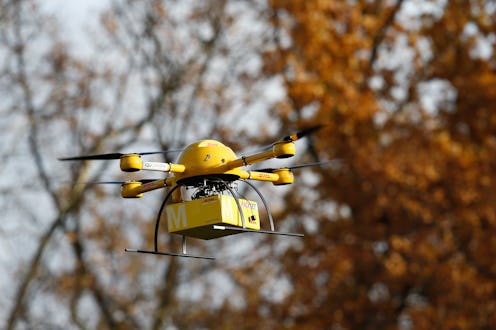News
Facebook Wants Some Drones, Too
Move over, Amazon: Apparently Facebook wants to buy a drone company. This could have massive ramifications for both people creeped out by drones, and the billions living without internet access in the developing world. Reportedly in talks with Titan Aerospace about a possible acquisition, it's believed that Facebook plans to use Titan's solar-powered drones — which can safely reach heights of near-orbit — to do their part for Mark Zuckerberg's Internet.org. Meaning, they'll be used to provide online connectivity to roughly two-thirds of the world's population who lives without it.
The plan would see Facebook try out drones in a very different way than the government (tracking, targeting, killing) or the slightly implausible scheme Amazon hatched last year (deliveries.) To deliver steady Internet access, these drones would have to be highly-specialized and very dependable. Luckily, this is the reputation of Titan Aerospace's Solara 60 drone model, which is why the reported post-acquisition plan is for Facebook to produce about 11,000 of them.
Powered by internet battery packs when launched at night, the Solara 60 draws energy from the sun the first day of its operation. That's a powerful enough charge to allow it to ascend to 20 kilometers above sea level, at which point — and this is the payoff — they'll be able to stay in the air without landing for five years.
So, as drones go, they'd be perfect to distribute Internet connectivity to less-developed nations and regions throughout the world, since they'd be freed from having to come down for gas or electricity.
One possible snag: The FAA regulates all airspace under 60,000 feet on American soil, meaning that it'd have to approve the takeoff and ascent of the drone. However, these rules also play nicely into the hands of the Titan drones, since they'd fly above the regulated airspace — and anything flying above 60,000 feet is fair game and unregulated. So, once the drones had ascended above that level, they'd be free to hang out there for the next five years.
In other countries, the airspace rules may vary, or not be as strict — but stateside at least, this plan could, theoretically, work. So, Facebook, if you can find a way to use drones to connect the broad swaths of internet-deprived people around the world, hats off to you. This is a pretty good plan, as far as high-powered companies jumping into the drone business go.
